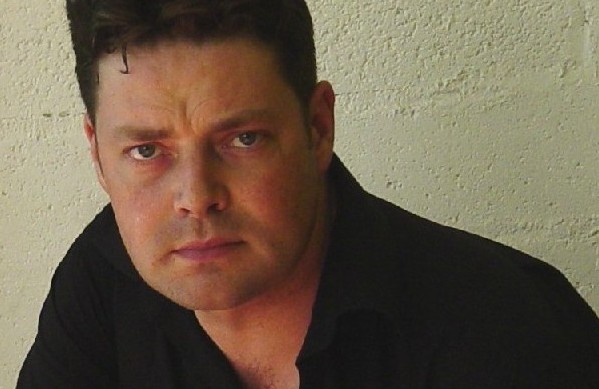Three: We Leave The Office (continued)
The telephone is one of those flimsy plastic numbers that aquaplanes around one end of the bar. Some self-contradictory instructions are sellotaped to it. She answers before I hear a ringing tone.
"Dickie, where are you?" she says, with the usual note of crescent hysteria in her voice.
"In the pub," I tell her and she wails like a distressed bison, its hide punctured by a Pawnee arrow.
"With him?" she asks eventually, amidst sobs.
"Napier's here. He's reading."
"Always together, you two. Inseparable."
"That's hardly true, is it Darling. I spend every night with you, and every weekend."
"Not this weekend. I'm going home."
This, clearly, is excellent news. I resolve to make at least a token effort to dissuade her.
"But Darling our plans..."
"Our plans will wait for another weekend," she says. "I am packed. I will see you," she pauses, as if stuck for a word, "one fine day."
"Darling," I begin, but she has already put the 'phone down, no doubt with a flourish of black nightdress.
I return to the bench, and Napier has bought me another drink, something of a feat, since I didn't see him approach the bar, and he had run out of money the last time it was his round.
"Cheers!"
He closes his book, and looks at me over a pair of imaginary pince-nez.
"What gives?"
"Sorry?" Napier coughs.
"What news of the fair Lucia, La Strega?"
"She's off back up to Whitby for the weekend," I tell him. "I'm a free man."
"Remember the Memo," he says. "We are all trapped in the belly of the Leviathan, and can only free ourselves by tickling its uvula." I haven't read this section yet, and am immediately concerned that it may need some rewriting. "Nevertheless," he continues, "we should enjoy these intimations of liberty where we find them. Now, let's get properly drunk."
"Dickie, where are you?" she says, with the usual note of crescent hysteria in her voice.
"In the pub," I tell her and she wails like a distressed bison, its hide punctured by a Pawnee arrow.
"With him?" she asks eventually, amidst sobs.
"Napier's here. He's reading."
"Always together, you two. Inseparable."
"That's hardly true, is it Darling. I spend every night with you, and every weekend."
"Not this weekend. I'm going home."
This, clearly, is excellent news. I resolve to make at least a token effort to dissuade her.
"But Darling our plans..."
"Our plans will wait for another weekend," she says. "I am packed. I will see you," she pauses, as if stuck for a word, "one fine day."
"Darling," I begin, but she has already put the 'phone down, no doubt with a flourish of black nightdress.
I return to the bench, and Napier has bought me another drink, something of a feat, since I didn't see him approach the bar, and he had run out of money the last time it was his round.
"Cheers!"
He closes his book, and looks at me over a pair of imaginary pince-nez.
"What gives?"
"Sorry?" Napier coughs.
"What news of the fair Lucia, La Strega?"
"She's off back up to Whitby for the weekend," I tell him. "I'm a free man."
"Remember the Memo," he says. "We are all trapped in the belly of the Leviathan, and can only free ourselves by tickling its uvula." I haven't read this section yet, and am immediately concerned that it may need some rewriting. "Nevertheless," he continues, "we should enjoy these intimations of liberty where we find them. Now, let's get properly drunk."
